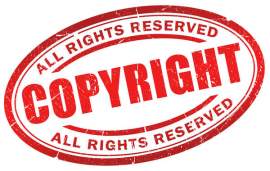
MGM Studios, Inc. v. Grokster, Ltd.

Popular In Copyright
Copyright Law Copyright Infringements What Is Copyright Legal Consequences Of Plagiarism Copyright Free Image Florida Prepaid Postsecondary Education Expense Board V College Savings Bank Famous Cases Of Copyright Law Copyright A Book Library Of Congress Copyright Copyright Laws For Motion Pictures Copyright Infringement Punishment Copyright Symbol
The copyright infringement case of MGM Studios, Inc. v. Grokster, Ltd. was filed in 2003 by MGM, Metro-Goldwyn-Mayer, Inc., a total of 28 other entertainment companies, against Grokster and Steamcast. Grokster and Steamcast were Internet companies that offered peer-to-peer file sharing. Peer-to-peer file sharing, otherwise known as P2P file sharing, is the act of sharing stored digital information, such as movies, music, documents, and electronic books. This particular movie copyright suit was filed due to the fact that a large number of the files that were being shared on these websites were copyrighted material, some of which belonged to MGM and the other listed entertainment companies.
In response to the copyright infringement case,
Grokster argued that if the movie copyright suit were to be found in favor of
the plaintiff, this would create the potential grounds for movie copyright
organizations to seek damages in a number of previous acts believed to be
related to peer-to-peer file sharing and copyright infringement. With
this not being the first filed copyright infringement case that Grokster was
named in on behalf of MGM, there was a great deal at stake as to what the final
decision would forecast for future movie copyright regulations.
The copyright infringement case was originally filed by MGM, along with the 28 entertainment companies, in the United States District Court for the Central District of California. The copyright infringement case was dismissed in 2003, due to its parallels to the Sony Corp. v. Universal City Studios movie copyright case, and its final verdict. In the Sony Corp v. Universal City Studios copyright infringement case, the court had to reach a decision as to the regulation of the VCR.
Movie
copyright lawmakers had to decide whether or not VCR manufacturers would be responsible
for the actions of consumers that used their product on the basis of potential
copyright infringement. In the copyright infringement case of Sony Corp.
v. Universal City Studios, the final verdict by the Supreme Court of the United
States concluded that the function of VCR recording for individual use executed
a person's right to fair use.
The copyright infringement case of MGM Studios,
Inc. v. Grokster, Ltd., was then filed by MGM to the United States Court of
Appeals for the Ninth Circuit. This second installment of the movie
copyright case was dismissed on the basis of the notion that P2P file sharing
is a method that is lawfully binding. Nevertheless, it was in 2005 that
the United States Supreme Court made the final ruling on the copyright infringement
case, declaring that Grokster, Ltd. and Steamcast were liable for their
involvement in the P2P file sharing being conducted on their networking
sites.
The basis for the final Supreme Court ruling in the MGM Studios, Inc. v. Grokster, Ltd. copyright infringement case was that the court saw the defendants' actions as a copyright infringement by specifically promoting such practice and capability to consumers.
NEXT: Pennock v. Dialogue




















